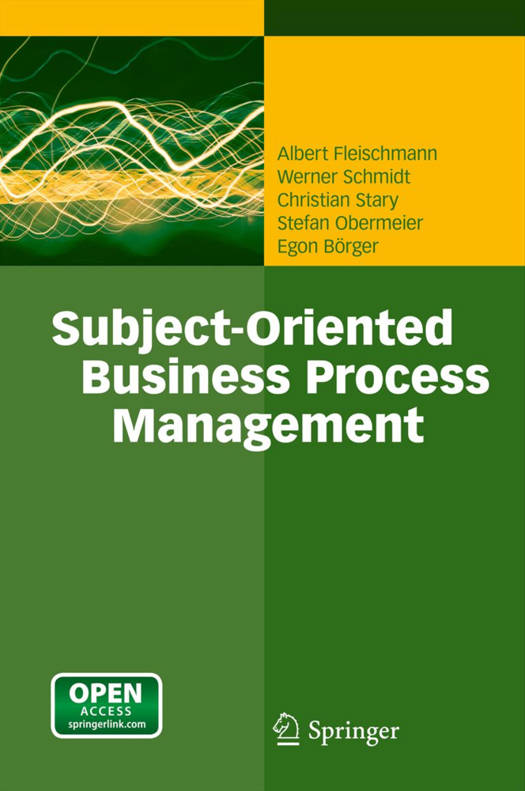
- Afhalen na 1 uur in een winkel met voorraad
- Gratis thuislevering in België vanaf € 30
- Ruim aanbod met 7 miljoen producten
- Afhalen na 1 uur in een winkel met voorraad
- Gratis thuislevering in België vanaf € 30
- Ruim aanbod met 7 miljoen producten
Subject-Oriented Business Process Management
Albert Fleischmann, Werner Schmidt, Christian Stary, Stefan Obermeier, Egon BörgerOmschrijving
Activities performed in organizations are coordinated via communication
between the people involved. The sentences used to communicate are naturally structured by subject, verb, and object. The subject describes the actor, the verb the action and the object what is affected by the action. Subject-oriented Business Process Management (S-BPM) as presented in this book is based on this simple structure which enables process-oriented thinking and process modeling.
S-BPM puts the subject of a process at the center of attention and thus
deals with business processes and their organizational environment from a new perspective, meeting organizational requirements in a much better way than traditional approaches. Subjects represent agents of an action in a process, which can be either technical or human (e.g. a thread in an IT system or a clerk). A process structures the actions of each subject and coordinates the required communication among the subjects. S-BPM provides a coherent procedural framework to model and analyze business processes: its focus is the cooperation of all stakeholders involved in the strategic, tactical, and operational issues, sharing their knowledge in a networked structure.
The authors illustrate how each modeling activity through the whole development lifecycle can be supported through the use of appropriate software tools. The presentation style focuses on professionals in industry, and on students specializing in process management or organizational modeling. Each chapter begins with a summary of key findings and is full of examples, hints, and possible pitfalls. An interpreter model, a toolbox, and a glossary summarizing the main terms complete the book. The web site www.i2pm.net provides additional software tools and further material.
Specificaties
Betrokkenen
- Auteur(s):
- Uitgeverij:
Inhoud
- Aantal bladzijden:
- 376
- Taal:
- Engels
Eigenschappen
- Productcode (EAN):
- 9783642323911
- Verschijningsdatum:
- 1/11/2012
- Uitvoering:
- Hardcover
- Formaat:
- Genaaid
- Afmetingen:
- 156 mm x 234 mm
- Gewicht:
- 721 g

Alleen bij Standaard Boekhandel
Beoordelingen
We publiceren alleen reviews die voldoen aan de voorwaarden voor reviews. Bekijk onze voorwaarden voor reviews.











